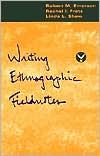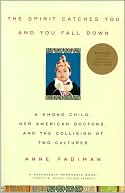Writing Ethnographic Fieldnotes
Search in google:
In this companion volume John van Maanen's Tales of the Field, three scholars reveal how the ethnographer turns direct experience and observation into written fieldnotes upon which an ethnography is based.Drawing on years of teaching and field research experience, the authors develop a series of guidelines, suggestions, and practical advice about how to write useful fieldnotes in a variety of settings, both cultural and institutional. Using actual unfinished, "working" notes as examples, they illustrate options for composing, reviewing, and working fieldnotes into finished texts. They discuss different organizational and descriptive strategies, including evocation of sensory detail, synthesis of complete scenes, the value of partial versus omniscient perspectives, and of first person versus third person accounts. Of particular interest is the author's discussion of notetaking as a mindset. They show how transforming direct observations into vivid descriptions results not simply from good memory but more crucially from learning to envision scenes as written. A good ethnographer, they demonstrate, must learn to remember dialogue and movement like an actor, to see colors and shapes like a painter, and to sense moods and rhythms like a poet.The authors also emphasize the ethnographer's core interest in presenting the perceptions and meanings which the people studied attach to their own actions. They demonstrate the subtle ways that writers can make the voices of people heard in the texts they produce. Finally, they analyze the "processing" of fieldnotes—the practice of coding notes to identify themes and methods for selecting and weaving together fieldnote excerpts to write a polished ethnography.This book, however, is more than a "how-to" manual. The authors examine writing fieldnotes as an interactive and interpretive process in which the researcher's own commitments and relationships with those in the field inevitably shape the character and content of those fieldnotes. They explore the conscious and unconscious writing choices that produce fieldnote accounts. And they show how the character and content of these fieldnotes inevitably influence the arguments and analyses the ethnographer can make in the final ethnographic tale.This book shows that note-taking is a craft that can be taught. Along with Tales of the Field and George Marcus and Michael Fisher's Anthropology as Cultural Criticism, Writing Ethnographic Fieldnotes is an essential tool for students and social scientists alike. Booknews Focuses on the process of transforming observation into text, using actual working fieldnotes to consider technical, interactional, personal, and theoretical issues. Chapters on procedures for writing up fieldnotes, developing analyses, organizing and coding notes, and producing an ethnographic document conclude with reflections on the implications of writing practices in ethnography. For undergraduate and graduate students in sociology, anthropology, folklore, oral history, and ethnomusicology. Paper edition (unseen), $12.95. Annotation c. Book News, Inc., Portland, OR (booknews.com)
Preface1Fieldnotes in Ethnographic Research12In the Field: Participating, Observing, and Jotting Notes173Writing Up Fieldnotes I: From Field to Desk394Writing Up Fieldnotes II: Creating Scenes on the Page665Pursuing: Members' Meanings1086Processing Fieldnotes: Coding and Memoing1427Writing an Ethnography1698Conclusion211Notes217References235Index245








